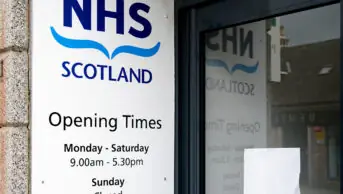
Shutterstock.com
Aseptic services should be “ringfenced” amid cuts to NHS England trusts, the House of Lords Public Services Committee was told at an inquiry into medicine security.
Speaking at the inquiry on 5 November 2025, Andrew Davies, former national director of hospital pharmacy at NHS England, said capacity within aseptic teams is a “significant issue”, which means by 2030, 13,000 patients within the NHS will not be able to get their chemotherapy medicines.
“NHS England has on its risk register, an entry around the gap in capacity to supply chemotherapy. And by 2030, there’ll be 13,000 patients who will not be able to get their chemotherapy medicines because there isn’t the capacity to supply it at the moment,” he said.
“There’s lots of work [being done], so Leeds have a facility that’s being built, but across the country, this is a gap.”
In the same session, Richard Bowers, medicines procurement and supply at Leeds Teaching Hospitals NHS Trust, called for services, such as the supply of cancer medicines, to be ringfenced amid cuts to NHS England.
“Where we were with the platinum-based chemotherapy shortage this time two years ago, where we came within seven days of having to cancel curative cancer treatment for children in some hospitals, things do seem better, more stable — the problem’s not gone away but it’s better,” Bowers said.
“I’m really conscious, we all are, that there is a major national reorganisation going to take place with NHS England and DHSC [Department of Health and Social Care]. We cannot lose the gains that have been made, we have to keep the pace of improvement going, so my plea really is to ringfence those services.”
In response to the comments, a spokesperson for the NHS told The Pharmaceutical Journal: “The NHS is investing in increasing the capacity for aseptic medicines production, including chemotherapy as part of the infusions and special medicines programme. The programme also includes a workstream on building the workforce, alongside developing state-of the art facilities.”
Bowers also explained to the House of Lords committee that medicines shortages generate “an enormous amount of work, operational pressure, financial pressure, but also an emotional pressure”, adding that “the pressure on the medicines procurement teams to get these drugs in is extreme”.
He added: “My purchasing manager said to me the other day, she’d stopped her car on the way home, burst into tears because she spent all day trying to get hold of a chemotherapy drug from a supplier and couldn’t do it, and she felt she’d failed. That was her role. She wanted to get that drug to our patients, and she couldn’t do it. And that human impact when dealing with shortages is really difficult.
“That’s just for the teams trying to get the drugs in, never mind the clinicians having those difficult conversations with patients about treatments being changed at last minute, postponed, sometimes cancelled. It’s really significant.”
The inquiry heard that between 5,200 and 9,800 hours per week were spent managing medicines shortages in NHS trusts, despite only around 3% of drugs used in hospitals being in short supply.
Amandeep Doll, hospital pharmacist and director for England at the Royal Pharmaceutical Society, told the inquiry that “the time spent in mitigating these shortages could be spent on looking at other patients”.
The House of Lords were also told that late payment for medicines means NHS hospitals have outstanding unpaid bills.
Speaking at the inquiry, Martin Sawer, chief executive of the Healthcare Distribution Association (HDA), which represents pharmaceutical wholesalers, said that “NHS hospitals owe us £47m” in overdue medicines bills.
In addition, cash flow problems in the sector mean that “community pharmacies are not paying [supplier] bills and 200+ direct debits are cancelled with pharmacies every month. We have to ask for the money up front. That’s completely inefficient”, Sawer said.
Sawer added that while NHS hospitals “will eventually pay”, he complained that the Home Office “does not recognise resilience in medicine supply”.
He also suggested that delays in the Home Office issuing licenses for controlled drug premises demonstrates that suppliers are relying on premises they believe could be unsafe, while international manufacturers refuse to make supplies to unlicensed premises, which forces suppliers to find new premises.
Needing to renew licenses each year was an example of an “unnecessary cost” in the supply chain that “if they were tweaked and changed, would certainly help”, Sawer said.
Each NHS trust is responsible for local purchasing decisions but should operate within national guidance called the Better Payment Practice Code, which requires invoices to be paid within 30 days to support supplier cash flow and NHS sustainability.
The Home Office and the Department for Health and Social Care have been approached for comment.


